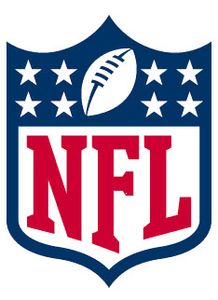NFL Gives $1 Million to BUSM’s CSTE to Study Long-term Impact of Brain Injuries in Football
The National Football League (NFL) will give a $1 million unrestricted gift to the Center for the Study of Traumatic Encephalopathy (CSTE) at Boston University School of Medicine to support the Center’s research.

The funds will be used to continue the Center’s ground-breaking research into the long-term effects of repetitive brain trauma in athletes, in particular football players. CSTE researchers have been the driving force in providing evidence that repetitive blows to the head in sports can cause a degenerative brain disease called Chronic Traumatic Encephalopathy, or CTE, that is associated with later life cognitive and behavioral problems, and eventually causes dementia. The Center’s research has primarily focused on the examination of brains of deceased athletes. Future research by the Center will include advancing future pathological understanding of the consequences of sports-related brain trauma. In addition, the CSTE will launch a clinical research program to develop methods of early detection and to develop ways to effectively prevent and treat this disease.
The NFL is the first sports league to financially support this research at the Center for the Study of Traumatic Encephalopathy (CSTE) at Boston University School of Medicine. The NFL, with 32 teams, is the largest major professional sports league and includes the New England Patriots in nearby Foxboro, Mass.
“We are extremely grateful to Commissioner Roger Goodell and the NFL owners for their support of this important research,” said Robert Cantu, MD, CSTE Co-Director and Clinical Professor of Neurosurgery at Boston University School of Medicine. “This gift and the significant changes made in recent months by the NFL demonstrate the League’s commitment to the health and safety of current, retired, and future players, as well as millions of youth athletes. These unrestricted funds allow us to accelerate our research with independence and scientific integrity,” said Cantu.
“We obviously are very interested in the Center’s research on the long-term effects of head trauma in athletes,” said NFL Commissioner Roger Goodell. “It is our hope this research will lead to a better understanding of these effects and also to developing ways to help detect, prevent and treat these injuries.”
CTE, also referred to as dementia pugilistica (or punch drunk syndrome), is a progressive, neurodegenerative disease caused by repetitive concussive and subconcussive brain trauma, and eventually leads to dementia. Although it is well established in boxers, in recent years, CTE has been shown to exist in other athletes, including professional and collegiate football players and a professional hockey player. CTE was first reported in the medical literature in 1928, and the terms Traumatic Encephalopathy and CTE were first used in the 1960s.
The disease is characterized by the build-up of a toxic protein called tau in the form of neurofibrillary tangles (NFTs) and neuropil threads (NTs) throughout the brain. The abnormal protein initially impairs the normal functioning of the brain and eventually kills brain cells. Early on, CTE sufferers may display clinical symptoms such as memory impairment, emotional instability, erratic behavior, depression and problems with impulse control. However, CTE eventually progresses to full-blown dementia. Although similar to Alzheimer’s disease, CTE is an entirely distinct disease.
The CSTE was created in 2008 as a collaborative venture between Boston University School of Medicine (BUSM) and the non-profit Sports Legacy Institute (SLI). The mission of the CSTE is to conduct state-of-the-art research of Chronic Traumatic Encephalopathy, including its neuropathology and pathogenesis, the clinical presentation and course, methods of diagnosis and early detection, the genetics and other risk factors for CTE, and ways of preventing and treating this cause of dementia. The CSTE is co-directed by Cantu, Ann McKee, MD, Robert Stern, PhD and Chris Nowinski. For further information, visit www.bu.edu/CSTE .